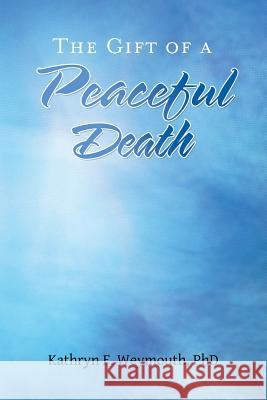The Gift of a Peaceful Death » książka
The Gift of a Peaceful Death
ISBN-13: 9781504381932 / Angielski / Miękka / 2017 / 252 str.
The Gift of a Peaceful Death
ISBN-13: 9781504381932 / Angielski / Miękka / 2017 / 252 str.
(netto: 66,02 VAT: 5%)
Najniższa cena z 30 dni: 68,38
ok. 16-18 dni roboczych.
Darmowa dostawa!
Many times you will hear people say that they don't fear death but they do fear what they may have to endure before they reach that final passage. Relying on medical interventions and pharmaceuticals alone often does not bring the peaceful death that people hope for, but by integrating complementary and alternative methods with Western medicine the possibility of having that ease at the end is significantly heightened.In this book you will read accounts by practicing professionals on how and when they use complementary and alternative modalities with their patients and clients. You will read about the many uses of energy healing, including how a hospital chaplain uses it to ease the pain and fear of patients who are on a medical ventilator. You will read about nurses who use essential oils to induce relaxation, reduce pain, and eliminate nausea. The music therapist shares stories of how music can soothe, elevate mood, and bring families together at the end of life. You will see how simple massage techniques can reduce pain and stress and lower blood pressure, how acupuncture can ease symptoms and in one case restored a patient's ability to breathe. With the probable exception of palliative care physicians, your medical provider may be prohibited from suggesting these be part of your treatment plan, but you, as the patient, or a family member, can ask for them. Creating an integrative treatment plan is consistent with the philosophy of hospice care: treat the whole person. The founder of the modern hospice movement, Dame Cicely Saunders, MD, saw the suffering of people with terminal illnesses who did not have adequate pain relief, who were lonely and isolated, and who felt spiritually bereft. This book shows how the complementary and alternative methods discussed fit perfectly within the model of holistic care and palliative medicine.











